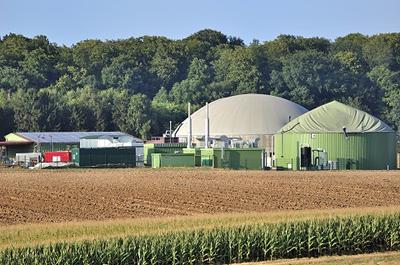Anaerobic digestion (AD) breaks down organic material, via micro-organisms, in the absence of oxygen, to produce methane-rich biogas, that can be used as a fuel.

Clean Carbon member, Dr Yue Zhang is working on a proof-of-concept project focusing on the diversification of anaerobic digestion into the field of industrial biotechnology through the production and harvesting of butyric and propionic acids as intermediate bulk chemicals. Such products have value and existing large-scale markets in their own right, and can also be considered for further bio-transformation and as the basis for an extended biorefinery concept.
Animal blood, produced in abattoirs, is a negative-value waste material and the project uses it as a fermentation substrate since its high nitrogen content provides buffering to allow the accumulation of acid products at high concentrations without detriment to the acidogenic population due to low pH.
The research builds on recent advances in understanding metabolic pathways and syntrophy in anaerobic digesters, that can lead to acid accumulation, and the mechanisms that control this.
The second part of the work focuses on selecting and testing potential extraction methods that could be applied at large scales, and will make a preliminary assessment of issues relating to design, cost and resource requirements and the environmental impacts of this novel biotechnology.